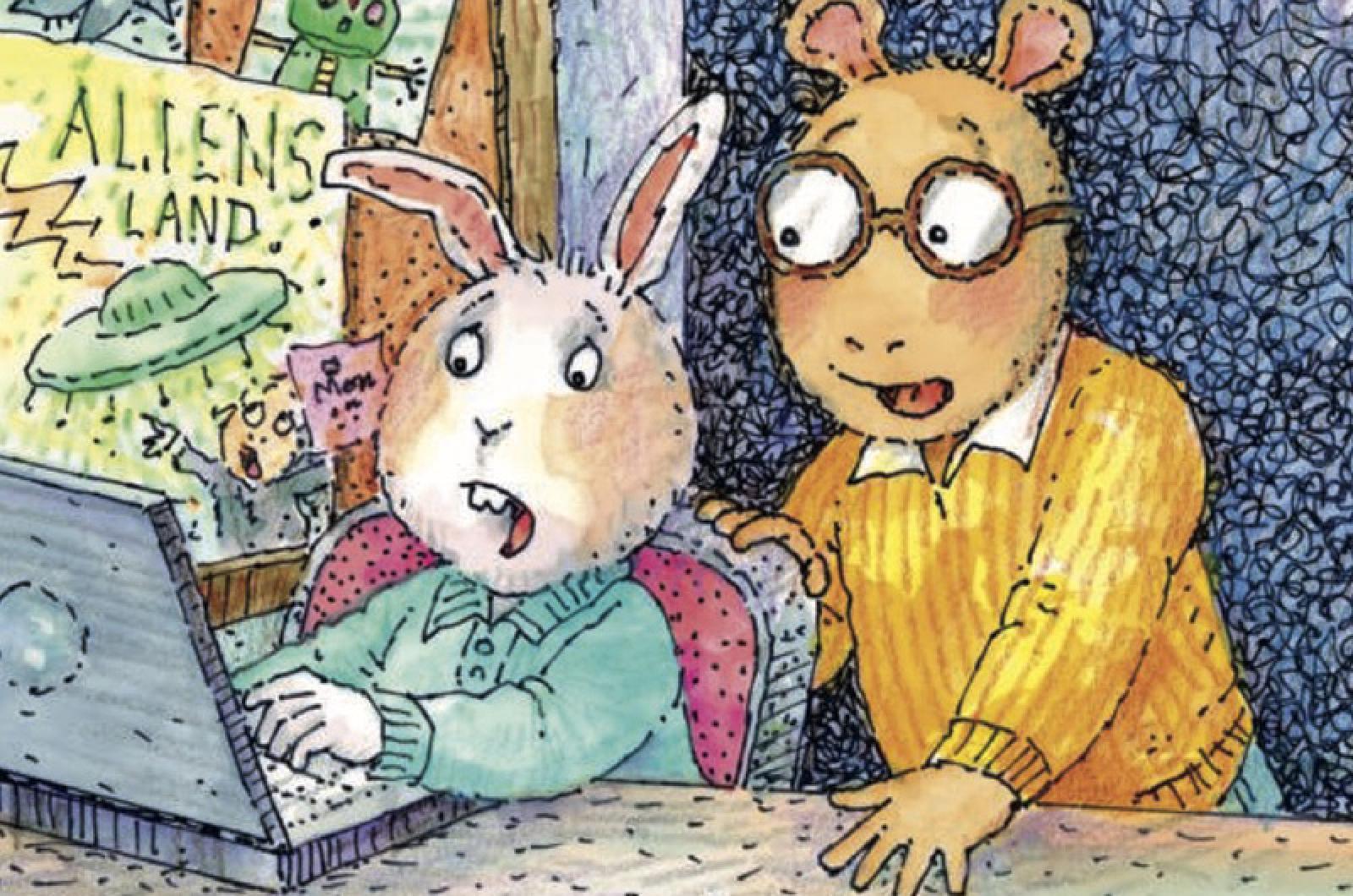Arthur’s Nose, the first Arthur children’s book, ends with the line “there’s a lot more to Arthur than his nose.” Author Marc Brown, a longtime seasonal resident of Vineyard Haven, didn’t realize how true that would be when he wrote the line 45 years ago.
“It’s just beyond any adventure I could ever imagine,” Mr. Brown said in a recent interview with the Gazette.
Mr. Brown, 75, has a new book out, Believe in Yourself: What We Learned from Arthur, to commemorate the 27 books and television series on PBS. The television series had its finale on Monday after being on the air for 25 years, the longest running animated children’s show on PBS.
Throughout that time, one thing has remained the same: Arthur has been a third-grader for 45 years. Mr. Brown said he has fond memories of third grade in Ms. Kingston’s class, so much so that the characters are based on his friends from that time. Mr. Brown’s vivid memories also allow him to write age-appropriate stories that are funny and informative.
“Third-grade was special for me, just as it is for Arthur,” Mr. Brown said.
Ending the television show is bitter-sweet, Mr. Brown said, but Arthur isn’t going anywhere. In addition to reruns on PBS, the plan is to continue the story of Arthur and his friends through other mediums such as podcasts and a video game. Mr. Brown said he also has not ruled out more books.
“It’s a great repository of subject matter that is not going to be outdated easily for kids or families,” he said. “Also, we want to concentrate on some new ways to reach kids.”
The Vineyard’s natural beauty helped his creative juices flow, Mr. Brown said. While the Vineyard only gets one passing mention in a book about Arthur’s vacation, Mr. Brown said he has done some of his best illustrating and writing on the Island over the years.
“[The Island] is a place that facilitates creativity...it frees us up in a way that’s truly magical,” he said.
The title of his latest book, Believe in Yourself, is also its message, Mr. Brown said. He described a moment talking to Fred Rogers — the host of Mister Rogers’ Neighborhood and a close friend. Mr. Rogers asked him about his grandmother Thora, who Mr. Brown said saved all his drawings and put away a few dollars per week for his college education.
She was the person who believed in him, Mr. Rogers pointed out.
“It was like somebody reached into my soul,” Mr. Brown said. “[Mr. Rogers said] ‘You know Marc, every child needs just one person in their life to believe in them to make it in the world.’”
Putting together the book, which is a compilation of moments from the previous books and episodes, reminded Mr. Brown of many Arthur adventures he had forgotten about over the years. He said it was fun, but the massive amount of source material meant he had to be scrupulous in deciding what to include.
The result is a book which represents the many experiences of Arthur and his friends and the lessons they learned, Mr. Brown said. Some moments are light-hearted. At one point Arthur’s younger sister D.W. tells the reader she will never stop trying to learn to ride a bike despite the many bandages on her body from previous falls. Others are more serious like when Arthur learns his Grandpa Dave has Alzheimer’s, but that he loves Arthur even if he can’t always remember his name.
Being able to remember how it felt to be a kid is key to Mr. Brown’s work because Arthur deals with difficult subject matter, Mr. Brown said. Coming up with age-appropriate stories and programs about climate change or racism is a responsibility he said he doesn’t take lightly. Once again he pointed to a lesson from Mr. Rogers to illustrate why.
“The space that happens between the television screen and the child, [Mr. Rogers] used to call that sacred, and I think that’s a good way to think of it,” Mr. Brown said. “It’s about that responsibility that we have to deliver the best we can for kids.”
Telling kids the truth has always been Mr. Brown’s goal because it frustrates him when children’s shows or books talk down to them, he said.
“Arthur has always been really good at representing the dignity of childhood,” he said.
Arthur is made for kids but it’s not just for kids, Mr. Brown said. He tries to incorporate a bit of adult humor to make it interesting for the whole family. He thinks of Arthur as a conversation starter between parent and child.
“You’re watching something and you don’t like what’s happening on the screen at the moment, you can say [to your child], ‘what do you think of that? I’m not sure I agree with that’ and tell your child why,” he said.
Although Arthur may be retiring, Mr. Brown is not planning to put down his pen. At present he is shifting his focus to Hop, a show for pre-schoolers about a frog who has one leg shorter than the other, along with other projects.
“Authors and illustrators of children’s books never retire...It’s what I love to do, it’s what I live to do,” he said. “And as long as I can hold a pencil, a paintbrush, use the keys of my keyboard, I’m going to keep doing what I love doing,” he said.







Comments (4)
Comments
Comment policy »